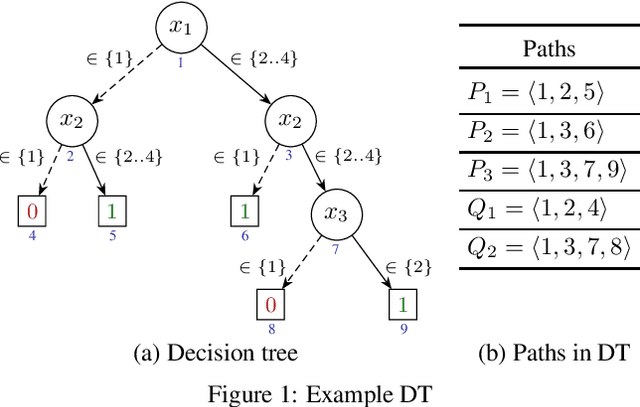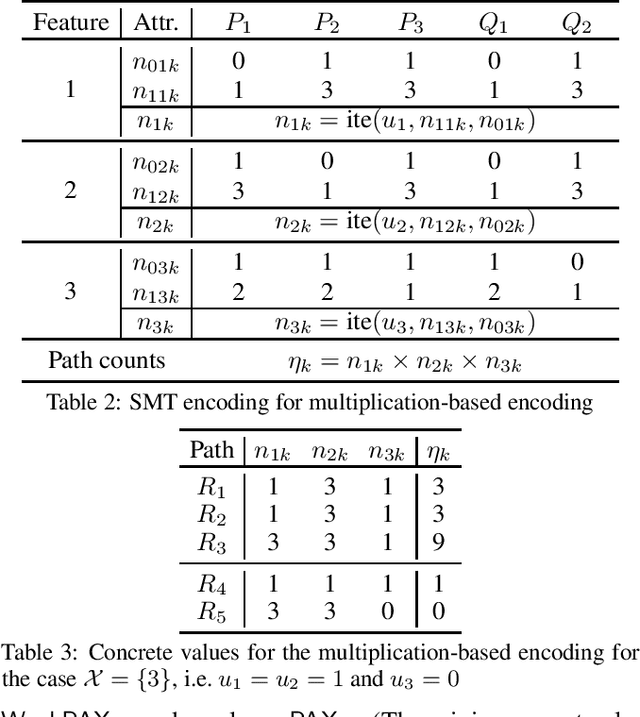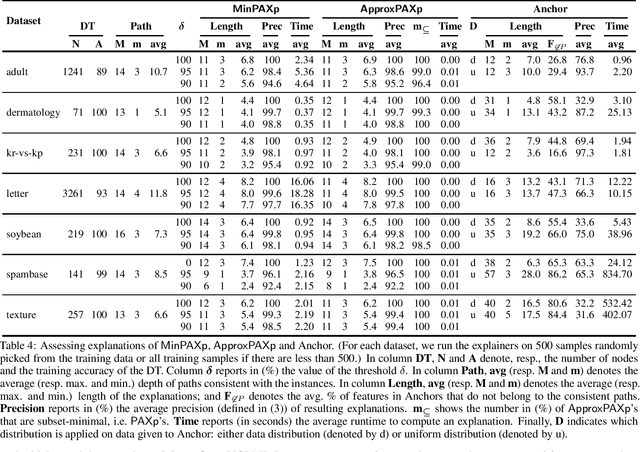Provably Precise, Succinct and Efficient Explanations for Decision Trees
Paper and Code
May 19, 2022



Decision trees (DTs) embody interpretable classifiers. DTs have been advocated for deployment in high-risk applications, but also for explaining other complex classifiers. Nevertheless, recent work has demonstrated that predictions in DTs ought to be explained with rigorous approaches. Although rigorous explanations can be computed in polynomial time for DTs, their size may be beyond the cognitive limits of human decision makers. This paper investigates the computation of {\delta}-relevant sets for DTs. {\delta}-relevant sets denote explanations that are succinct and provably precise. These sets represent generalizations of rigorous explanations, which are precise with probability one, and so they enable trading off explanation size for precision. The paper proposes two logic encodings for computing smallest {\delta}-relevant sets for DTs. The paper further devises a polynomial-time algorithm for computing {\delta}-relevant sets which are not guaranteed to be subset-minimal, but for which the experiments show to be most often subset-minimal in practice. The experimental results also demonstrate the practical efficiency of computing smallest {\delta}-relevant sets.
 Add to Chrome
Add to Chrome Add to Firefox
Add to Firefox Add to Edge
Add to Edge